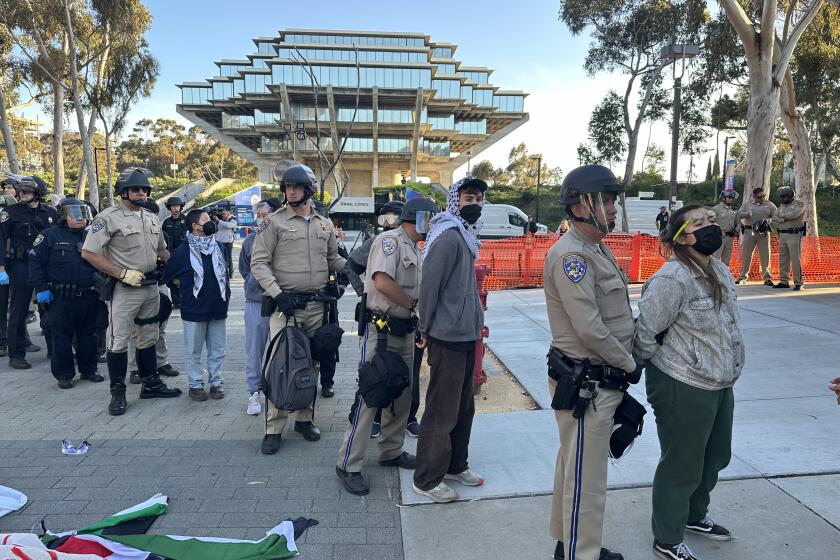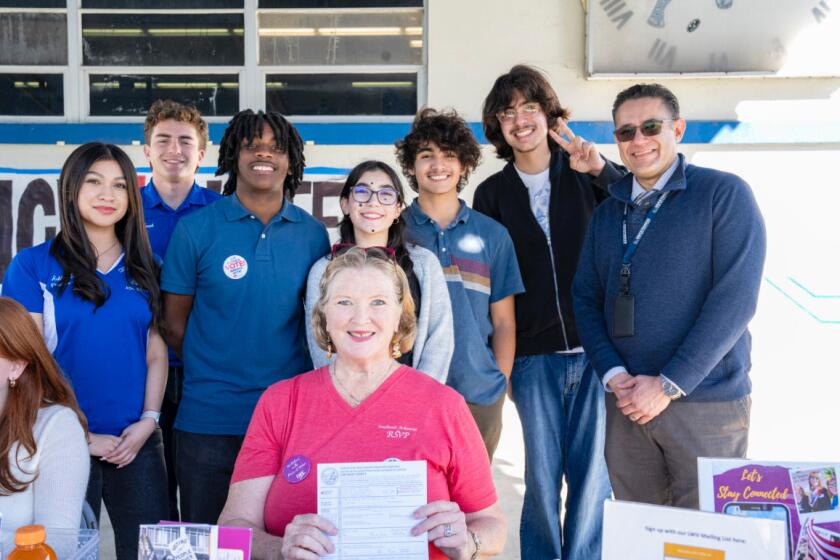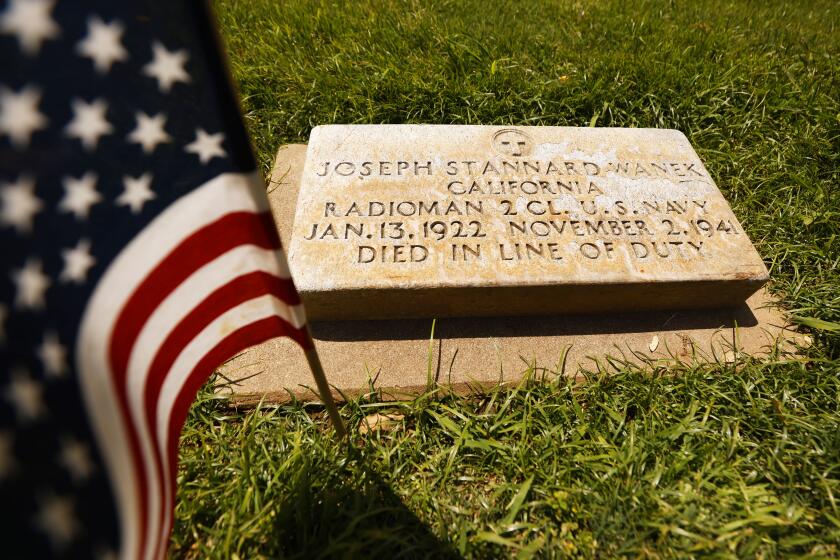Opinion: We intend to make an informed decision on unionization. Here’s our plan at USD.

Harris, D.Ed., is president of the University of San Diego. He lives in Linda Vista.
One of the most valued aspects of the University of San Diego community is our commitment to a culture of care and the dignity of all humans. That culture includes taking care of our non-tenure track faculty, important and valued members of our community.
At the University of San Diego, non-tenure track faculty members (sometimes known as “adjuncts”) bring outside perspectives and extensive experience as practitioners in a wide variety of fields. They are valued teachers, mentors and artists. They also participate in and lead university-funded teaching and internship experiences that enhance the learning environment for students.
In the last few weeks, there have been efforts to encourage non-tenure track instructors in USD’s largest academic unit — the College of Arts and Sciences (CAS) — to unionize, just like similar efforts on several other campuses across California and around the country. I was personally surprised by these efforts and disappointed that our deeply held culture of caring for our employees was not meeting their expectations.
I was raised by parents who were both hourly wage workers. One belonged to a labor union and the other was part of an organization that voted against unionization. Their different experiences demonstrated to me that there are individual views on the matter, and each of them made a decision based on what was right for their particular circumstance.
As president of USD, I am not pro- or anti-unionization. If a group of people is helped by a union, as many have been throughout history, that’s a good thing. If a union’s involvement is counter to the majority of a group of people’s best interests, it’s not. We stand for each person’s right to make an informed decision on whether or not to join a union based on their individual circumstances.
As a university committed to academic excellence, scholarship and research, we also stand for the pursuit of the truth.
And the truth is that USD leadership has a long track record of supporting, listening to, and collaborating with our non-tenure track colleagues — just as we do with all members of our community. Since 2014, non-tenure track faculty salaries have increased with the averages approved by our Board of Trustees every year at the same rate as our tenure track faculty. Since 2020, the College of Arts and Sciences Dean’s Office has hired seven non-tenure track faculty to serve as part of the college’s leadership and administration.
Additionally, over the past decade, we have made significant efforts to enhance our support of non-tenure track faculty, including expansion of benefits, the creation of recognition programs for exemplary work and the development of governing bodies that include non-tenure track membership and voices. We are also proud that the vast majority of courses in College of Arts and Sciences — over 80 percent — are taught by benefits-eligible faculty. These include medical benefits and a 10 percent retirement contribution.
USD also stands for excellence, so we understand that there is more to be done. The Office of the Provost, faculty committees (some of which non-tenure track faculty members co-lead), and many others at USD have been in conversation to identify and establish opportunities for enhanced job stability, compensation and opportunities for advancement.
Non-tenure track faculty in College of Arts and Sciences at USD now have an important decision to make on whether or not they join the Service Employees International Union. The voting process is governed by a very specific set of regulations set forth by the National Labor Relations board. We are respecting these rules and the process. We ask that those members of our community who seek to unionize, and the Service Employees International Union with whom they are collaborating, do the same.
We also encourage every member of our community to ask questions and learn more about unionization. We also encourage each member of our community to consider whether, and how, the addition of the Service Employees International Union into the process might impact our culture of working directly with one another.
Our culture of care was not created by accident — it was created by members of our community working together intentionally, in direct relationships with each other. Our non-tenure track faculty are valued colleagues, and their contributions are significant. We are committed to working with them to create the best possible learning environment for our students and the best possible work environment for our faculty.
Get Weekend Opinion on Sundays and Reader Opinion on Mondays
Editorials, commentary and more delivered Sunday morning, and Reader Reaction on Mondays.
You may occasionally receive promotional content from the San Diego Union-Tribune.




